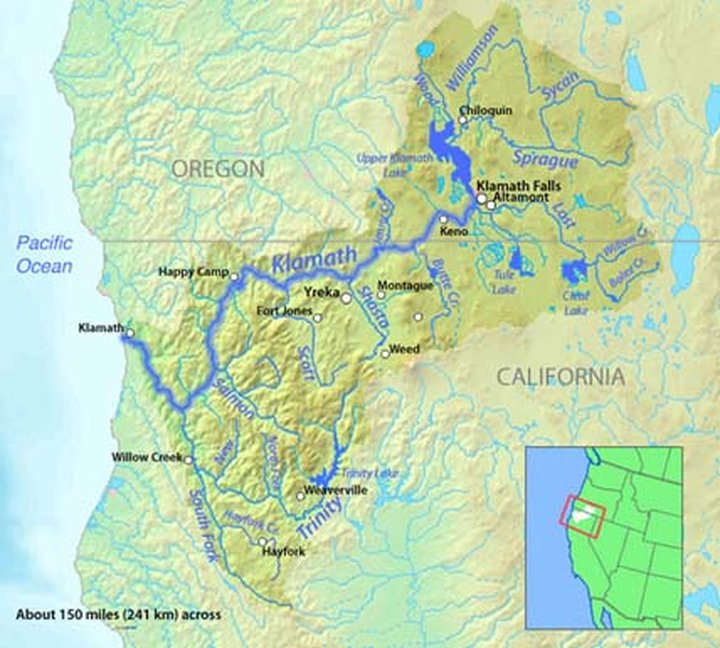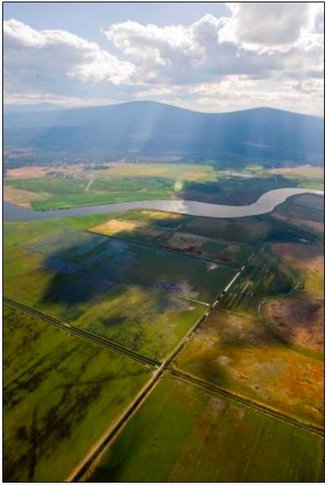
Map and photo via U.S. Bureau of Reclamation.
# # #
Press release from EarthJustice:

Irrigated croplands along both sides of the Klamath River south of Klamath Falls.
WASHINGTON, D.C. – The U.S. Supreme Court today refused to hear a case brought by Klamath Basin irrigators, Baley v. United States, settling for good the question of whether reduced water deliveries to Klamath Basin agricultural producers in 2001 constituted a “taking” of private property under the Fifth Amendment.
“We are pleased that the Supreme Court has declined to hear this case, and upheld the Federal Circuit’s decision,” said attorney Stefanie Tsosie of Earthjustice, a nonprofit environmental law firm that has been involved in this case for 18 years. “This decision affirms sound and settled principles of Tribal reserved water rights. Earthjustice has long worked to protect and restore the Klamath River and its salmon, which hold significant cultural value for Tribes in the Klamath Basin and are essential to sustaining the West Coast commercial salmon fishing industry.”
Background
The lawsuit began 18 years ago when a group of water districts and individual farmers in the Klamath Basin of southern Oregon sought compensation under the Fifth Amendment, as well as damages for breach of contract, over reduced Bureau of Reclamation water deliveries from the Klamath Project for irrigation in 2001.
Because it was a drought year, plaintiffs with junior water rights received less water than expected. However, the Federal Circuit found that the water available in 2001 was necessary to fulfill the senior water rights of Tribes in the Klamath Basin and so the plaintiffs had no property interest in water required to satisfy the Tribes’ right. Earthjustice represents the Pacific Coast Federation of Fishermen’s Associations, an affiliation of commercial salmon fishing interests that have faced drastically reduced fishing seasons and incomes because of declines in Klamath River and other salmon populations.
CLICK TO MANAGE